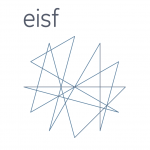Improving the Security of Staff with Diverse Identity Profiles
The European Interagency Security Forum (EISF) commissioned a research project to understand the security needs of NGO staff with a range of identity profiles including SOGIE, ethnicity and disability. The aim of this blog is to introduce you to the project and to ask for feedback.
In January, Emma Jones wrote a blog for CHS Alliance on the need to talk about Sexual Orientation, Gender Identity and Expression (SOGIE) in global development and humanitarian work. Since then, the European Interagency Security Forum (EISF) has picked up on this theme and commissioned a research project to understand the security needs of NGO staff with a range of identity profiles including SOGIE, ethnicity and disability.
The aim of this blog post is to introduce you to our research project, to introduce our independent research team and to invite you to share your views and experiences with us.
Security is something that affects everyone working in the development and humanitarian sector. We know that the risks we face differ according to the contexts in which we work, the types of programmes we are involved in, and that our personal identity profile can affect the nature of the risks we face. While many organisations conduct risk assessments for diverse contexts they are less certain about how to support the individual security needs of their diverse staff whilst remaining inclusive and respecting the rights of staff. Following, and expanding on, the joint RedR and EISF workshop in January 2016, the European Interagency Security Forum (EISF) has committed to addressing this issue by funding our team to develop a research project on “Managing the Security of Staff with Diverse Profiles”. The outcome of the research, due to be published in early 2018, will include a practical toolkit that provides strategic guidance for organisations on how to address these issues. This guidance will be based on the ODI Good Practice Review 8 and the forthcoming EISF publication: Security Risk Management – A Basic Guide for Smaller NGOs. It intends to pay close attention to all areas of security risk management for staff including, but not limited to, overseas deployment.
There are three elements of this project where we would welcome your contribution: The first phase involves a review of security, international travel and health and safety policies, to identify examples of inclusive language and strategies to support staff with diverse profiles. In order to draw from a wide pool of good practice, we intend to learn from organisations across the public, private and third sectors who are trying to address similar issues. If you feel that your organisation has examples of good practice and challenges to share, we would be very interested to hear from you at the e-mail address provided below.
We are also interested in hearing about your personal and professional experiences of security, in order to identify current barriers to inclusive security risk management and how best to support organisations to remove these barriers. With this in mind, there are two additional ways that you can contribute to the project. We would like to encourage you to take part in our online survey. The survey is quite wide-ranging so that we can gain an insight into the experiences of national and international staff, volunteers and consultants across different contexts and with different personal identity profiles.
The final way that you can contribute is to share your experiences of personal security issues in a 30 minute interview with a member of our research team.We would like to specifically encourage aid workers, security managers and advisers, and HR personnel and those with experience of how ethnicity, disability and sexual orientation, gender identity and expression affects security risk to get in touch with us.
Your participation will help EISF, and the sector more broadly, to provide better guidance to organisations on how to balance staff security while still respecting their employees’ rights to privacy, equality and inclusion.
Emma, Kate and Elizabeth
You are also welcome to contact Adelicia Fairbanks, the EISF research coordinator, at eisf-research@eisf.eu if you would like to find out more about our work more generally.
Biographies:
Emma Jones is a researcher and consultant with experience on a range of international development and education projects. She has an MA in Education, Gender and International Development as well as an MRes in Social Research Methods. Emma is currently a PhD Candidate and recipient of an Excellence Scholarship at the University of East London.
Kate Denman is a programme manager at RedR UK and an independent consultant. Kate has been working in the international development/humanitarian sector for over 10 years and was instrumental in the initial work between RedR and EISF on inclusion and security of LGBT aid workers.
Elizabeth Molloy is an education and gender specialist. She has a background in teaching and teacher training and has supported or managed development and emergency programmes in Sierra Leone, The Gambia, Nepal, Ethiopia, and Malawi. She now works as a gender specialist with C12 Consultants in Malawi supporting aid agencies such as Concern Worldwide, United Purpose, Trócaire, Christian Aid, Theatre for a Change, and GIZ with monitoring and evaluation, programme management support, training, and research.

